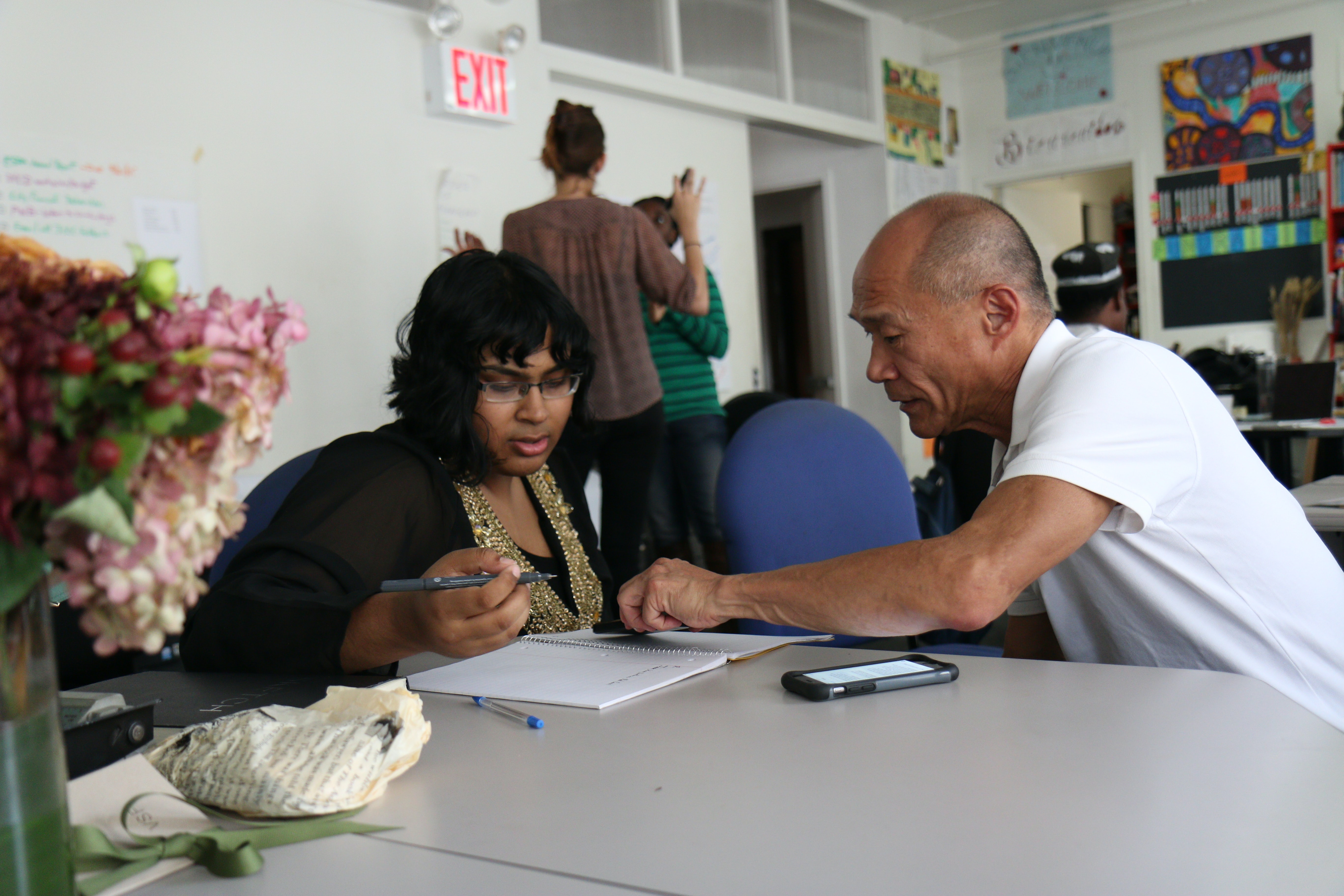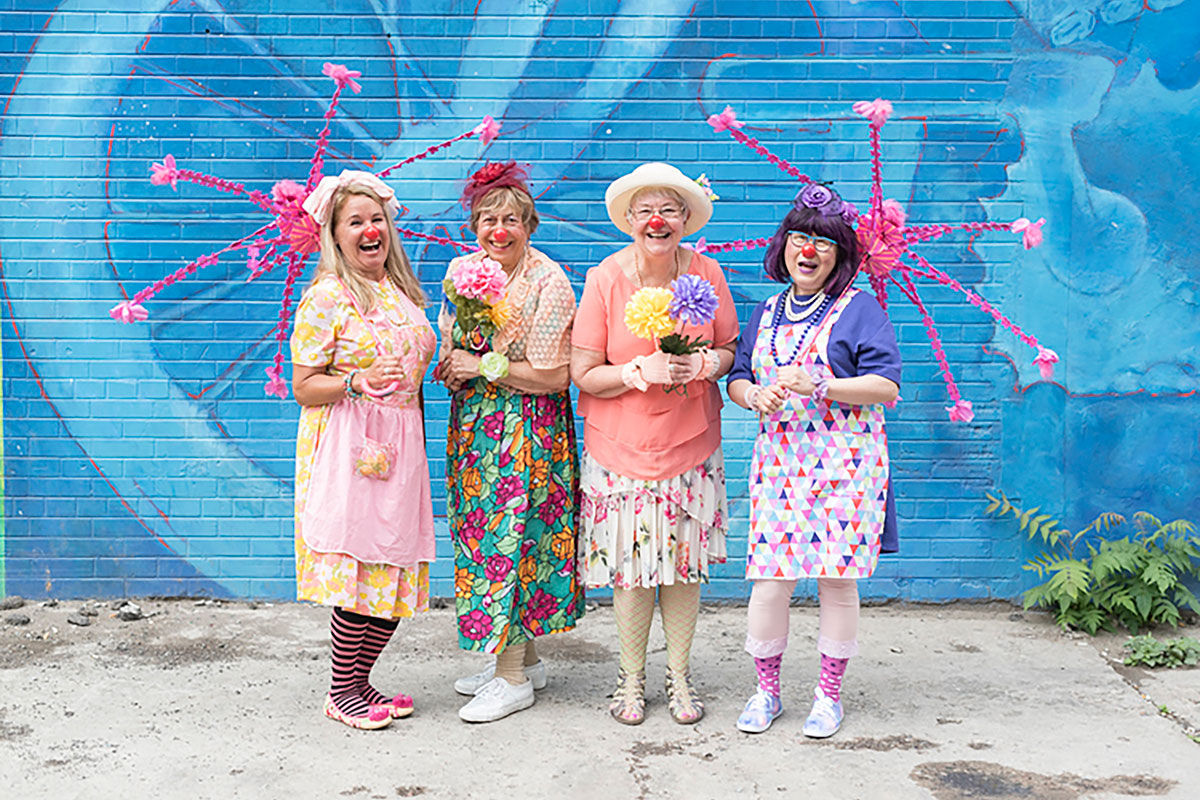The Importance of Lifelong Learning at Every Age

Photo by Monica Melton on Unsplash
January 27th, 2023
Many of us spend our formative years in formal education and then go on to the workforce, leaving the classroom behind. But there are many good incentives to take courses and embrace educational opportunities at all stages of our lives. Lifelong learning is important for so many reasons other than learning new skills: it enhances social inclusion, active citizenship, and individual development, but also increases competitiveness and employability (yes, even in retirement).
To learn more about the benefits of lifelong learning and the impact it has on society as a whole, we asked three Chang School instructors with Programs for 50+ for their perspectives and experiences. Rigzin Tute is a choral conductor and lecturer on music, Sunny Chan is a creative writing professor and also teaches a career transitions course, and Corey Tazmania is an instructor with the Caring Clown certificate program.
Chang School: What does "lifelong learning" mean to you?
Rigzin: It is the only kind of learning I can relate to! I’m constantly learning new aspects of music, which has included Indian classical music, jazz piano, and now bass guitar. I’m forever reading biographies and watching documentaries about musicians, architects, and fashion designers, amongst other creative types. I’m sure I’ll run out of time before I run out of interests to pursue.
Sunny: Lifelong learning makes us feel good regardless of whether we become highly skilled at it, or whether we can put it to use in a monetary kind of way. The concept of learning itself keeps your brain healthy and gives you goals in life.
Corey: Lifelong learning is a wonderful place to come back to a sense of curiosity and inquiry when they've lived a long time. There's a challenge in society to recognize that we keep growing, we keep expanding, we keep experiencing new experiences, and that is a continuing journey.
Chang School: Apart from what students learn in the course, how does being a part of something like Programs for 50+ help with enhancing social inclusion, and promoting active citizenship and individual development?
Rigzin: I definitely see how important the social connections learners make in choir and class are to them. I know many of them continue with these relationships outside of class. Gaining new knowledge and skills later in life keeps the brain healthy and the spirits up so I’m sure that many of them are benefitting from new neural connections being made as they learn harmonies in choir, and the skill of sight reading.
Sunny: Writing socially is very different from writing on your own and I'm sure this is true of a lot of other participation type classes as well. If you wanted to just write on your own, you could easily buy a book of writing exercises and just do it on your own. The point of going to a class is to have that community; a group of readers who will give you feedback, hear about how other people write, and dedicate time to writing at the same time with someone who is also working on something with similar goals and attitude. This can be really rewarding in itself.
Corey: With Caring Clown, the people that we serve in the program tend to have either intermediate or advanced dementia. In our course series, we’re exploring the stories of memory by tapping into, expanding, and playing with reminiscence in a fantastical way. This is where students also learn about each other, how to support each other.
Chang School: For those in the program that are still working and not retired, how would you say taking a course increases competitiveness and employability?
Sunny: Any time where you can say to your colleagues, “I'm taking this extra course,” demonstrates a willingness to learn and combats those stereotypes around people who are close to retirement being just interested in staying stagnant and plateauing professionally until they retire.
For the career transitions course in particular, we're also speaking to the fact that massive changes have taken place in the last few years in the way you look for work and the way you interact with work. There are a lot of new online tools that not everybody maybe is as familiar with or as up to speed with. Courses like this also address inherent ageism and the false assumption that young people are good at technology and older folks aren't, when they fully understand all these technologies we use. It will help them at work, and also the way that they can conceive of their careers.

Caring Clown
Corey: One of the main components of Caring Clown is learning about active and empathetic listening. What we're able to do is stay in a calm, compassionate place while taking and receiving information and exploring it in a way that still has the sense of possibility and newness. So we're being creative problem solvers. We're being critical thinkers. We’re able to learn how to hold space for others, as well as find key information in active listening, that can be playful and have a levity to it.
Chang School: Why do you think it's important for a university to have courses that are accessible to people of all ages?
Rigzin: Taking these kinds of courses is an excellent way for people who also see themselves as lifelong learners, and it benefits them to meet others who are similarly not yet ready to sit around idly and while away the rest of their lives.
Sunny: I've had creative writing courses where the majority of people are over 50, with some people quite a bit over 50 and then also a few people younger than 50. This has been really beneficial for people to hear different life experiences and how they have different approaches to their creative works.
Corey: It keeps people like my parents creative, it keeps them active, it keeps them engaged in a community so that they don't feel as isolated. It continues to give all of us a sense of meaning and a sense of belonging. Going to a university where expanding one's knowledge is coming from a place of respect, I think it is necessary.
